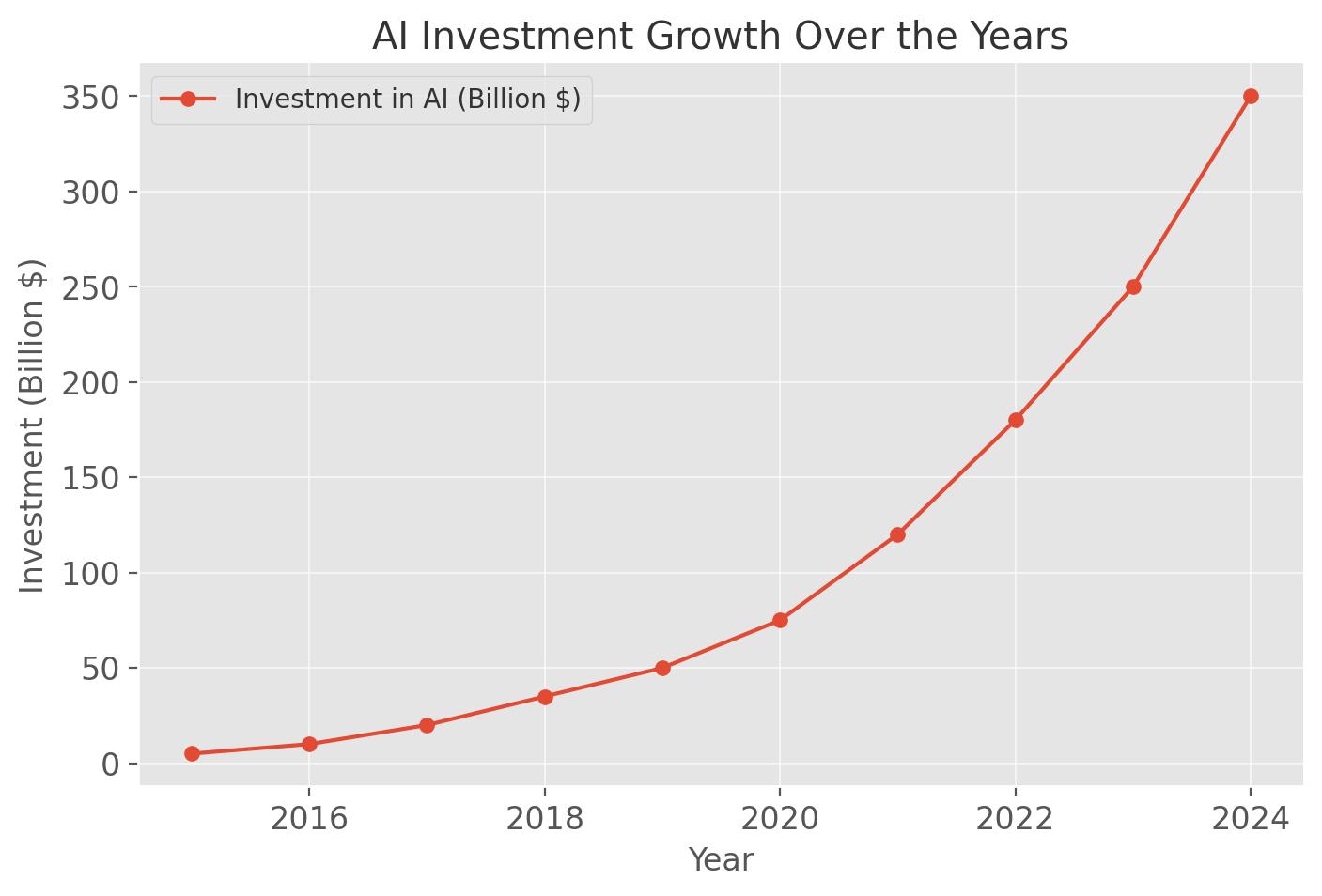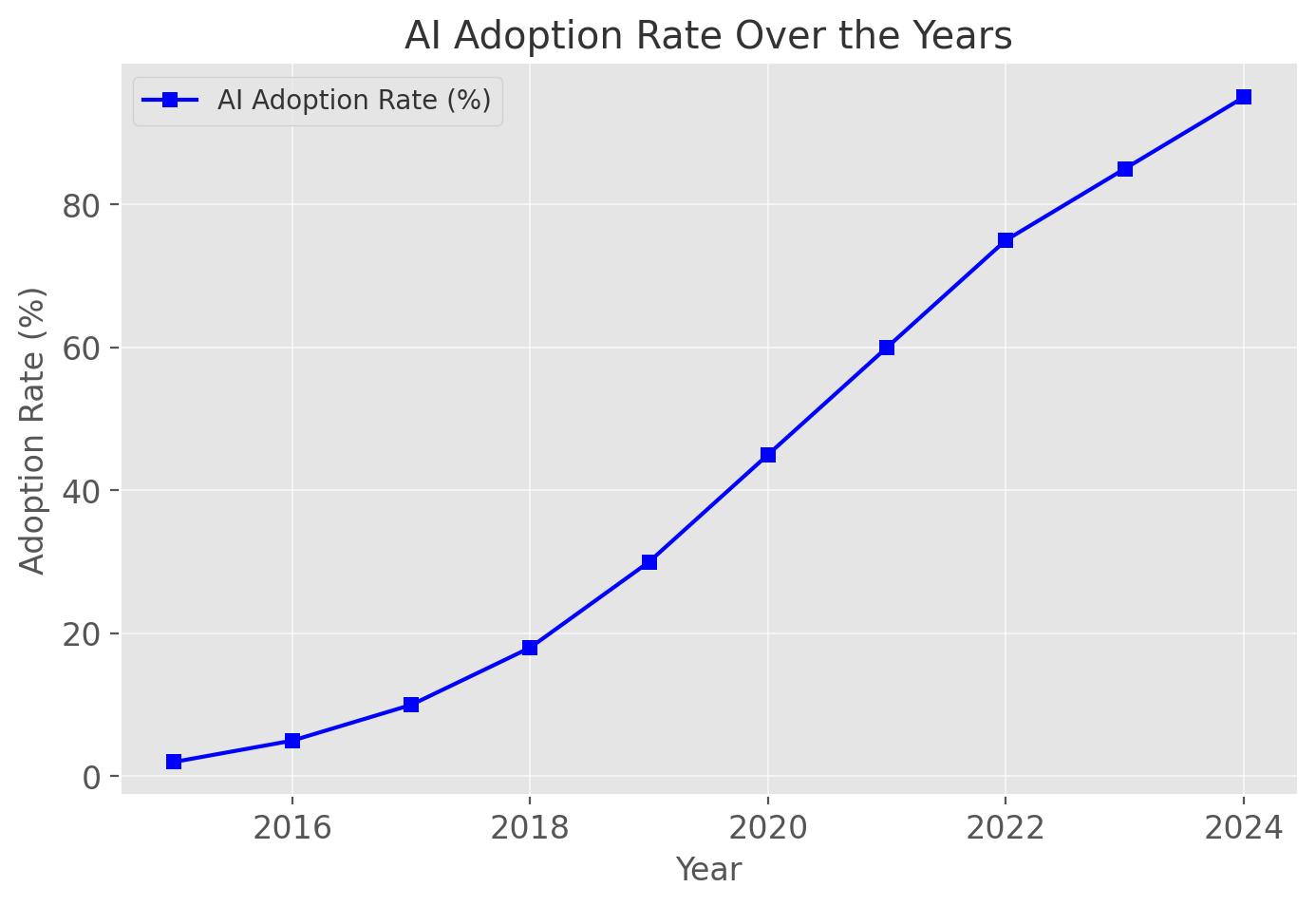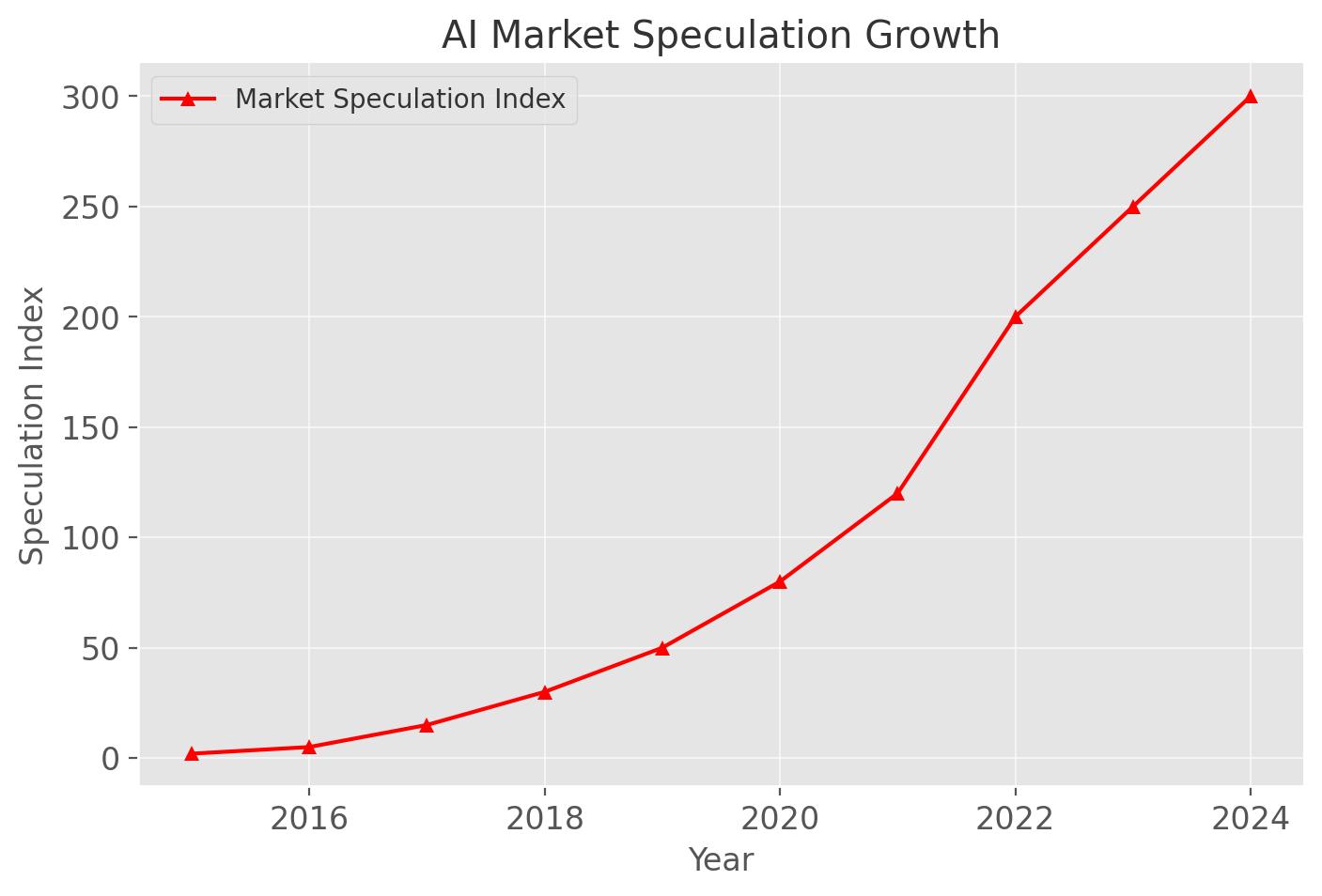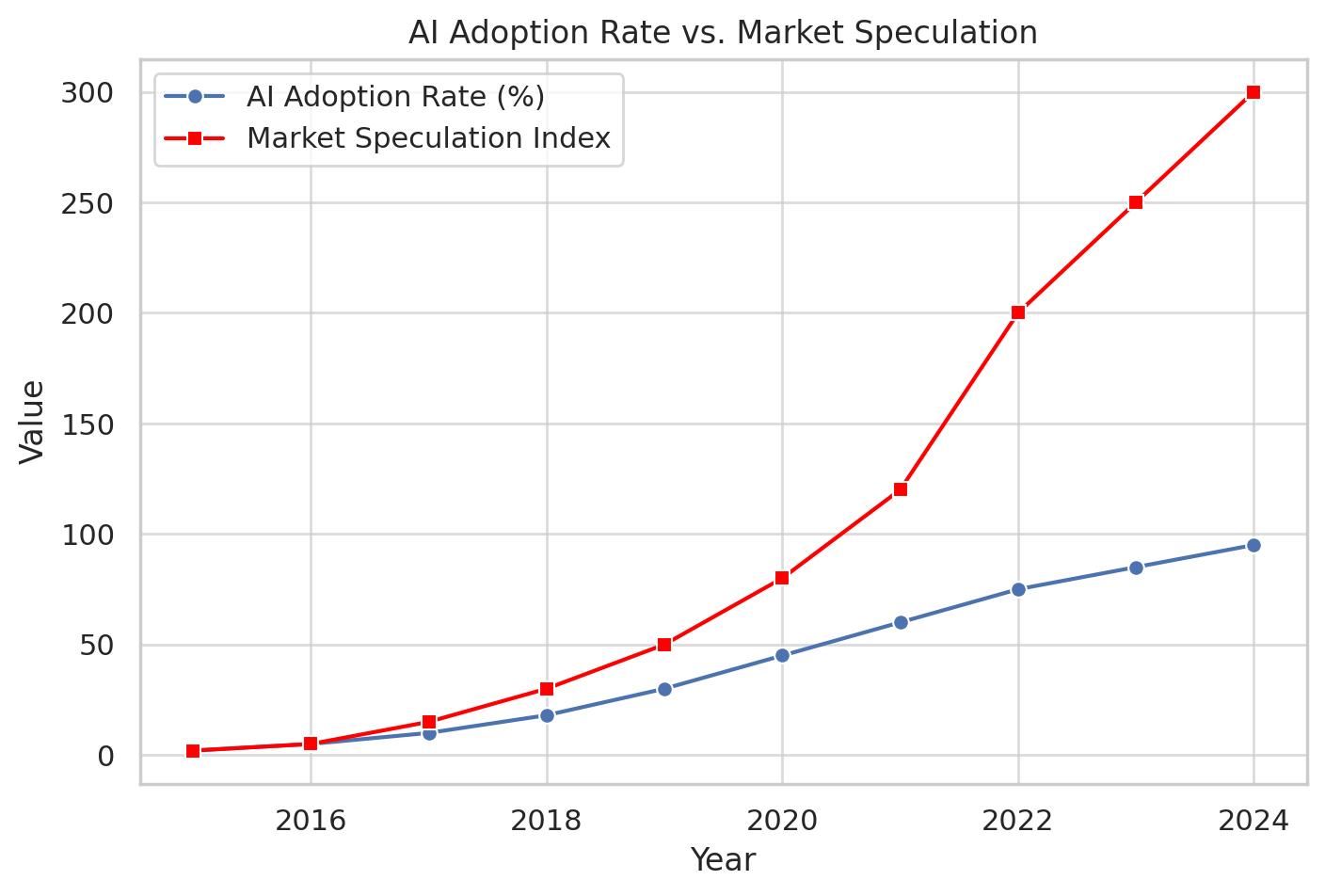The Rapid Growth of AI: Understanding the Hype and Reality
Artificial Intelligence (AI) is evolving at an unprecedented pace, and discussions around its future are intensifying. The recent rise in AI models, particularly with the introduction of increasingly sophisticated language models, has sparked a wave of speculation, excitement, and concern. But is the rapid adoption of AI sustainable, and are we heading toward a new technological revolution or an economic bubble?
 The AI Hype Cycle: A Look at the Market Trends
The AI Hype Cycle: A Look at the Market Trends
In recent years, AI technology has gone from being a niche research topic to a mainstream economic driver. Companies and investors are pouring billions into AI startups, while major tech giants continue to integrate AI into their ecosystems. The proliferation of generative AI tools, such as chatbots and image generators, has further fueled this growth, making AI more accessible and commercially viable.
However, history has shown that rapid technological advancements often follow a cycle of hype, peak adoption, and eventual market correction. The dot-com boom of the late 1990s and early 2000s serves as a relevant example—where excessive enthusiasm led to inflated valuations before the bubble burst. AI, in some ways, exhibits similar characteristics, with soaring valuations and a race to be at the forefront of innovation.
 The Economic Impact: Boon or Bubble?
The Economic Impact: Boon or Bubble?
The AI industry is undoubtedly bringing transformative change, but concerns remain about whether the current growth trajectory is sustainable. Investors and businesses must discern between genuine technological advancements and speculative investments. While some AI models are already generating significant revenue, many startups are yet to prove their long-term profitability.
This raises the question: Are we witnessing a true technological revolution, or are we heading toward another speculative bubble? Unlike previous tech bubbles, AI does have proven use cases, and its adoption across industries—from healthcare to finance—suggests a more enduring impact. However, businesses need to focus on practical applications rather than simply chasing trends.
 The Future of AI: Innovation vs. Speculation
The Future of AI: Innovation vs. Speculation
For AI to continue its trajectory without falling into the pitfalls of hype-driven investment cycles, the focus must shift toward meaningful innovation. Practical AI applications, ethical considerations, and regulatory frameworks will play a crucial role in shaping the industry's long-term success.
Moreover, developers, researchers, and policymakers must work together to ensure AI technology is not just scalable but also sustainable. The debate over AI's role in society—whether as an economic driver, a job disruptor, or even a potential existential risk—will continue to evolve in the coming years.
 Conclusion
Conclusion
AI's rapid growth is undeniable, and its impact will be felt across industries. While the current pace of investment and adoption may suggest an impending correction, the technology itself is here to stay. The key question remains: How do we navigate AI's potential responsibly, ensuring that it remains an asset rather than a speculative frenzy? As the AI industry matures, it will be crucial to separate genuine innovation from hype-driven growth, fostering an ecosystem that prioritizes long-term value over short-term gains.
